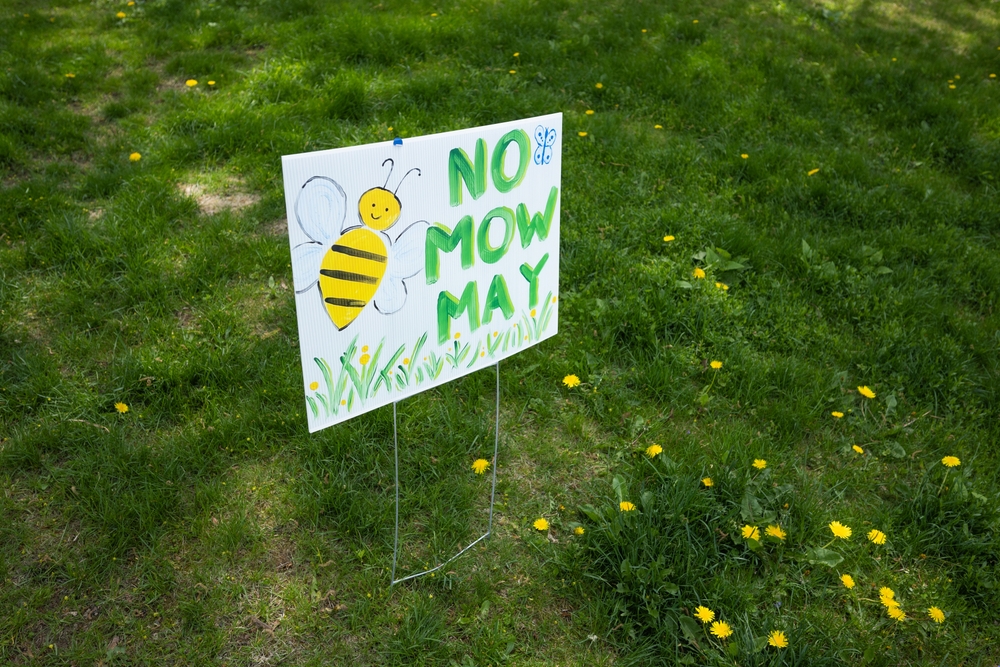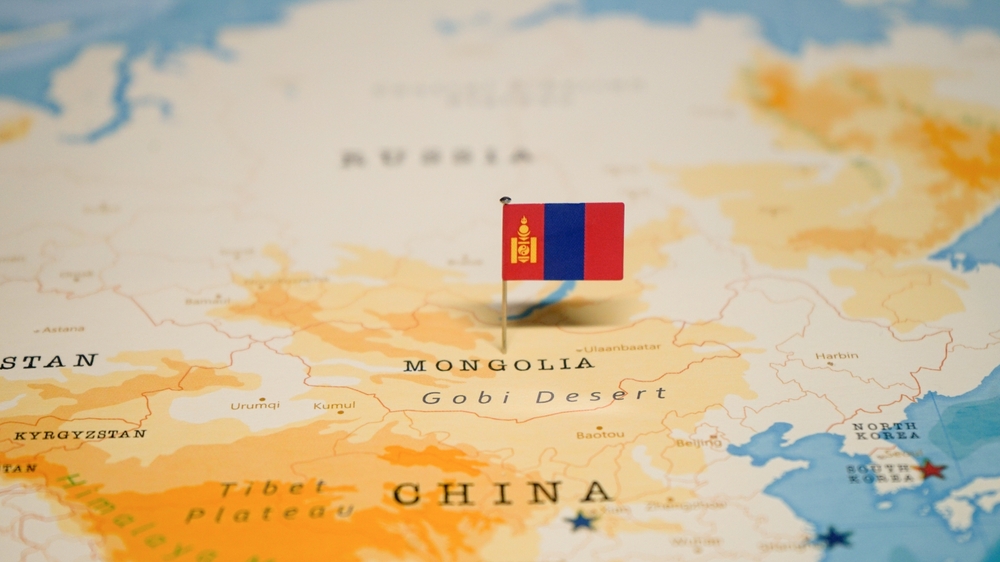The Sekem industrial park in Egypt pioneers a sustainable future
Marco Visscher | November 2004 issue
This place was nothing but sand 25 years ago. Now a number of nature-friendly businesses are based here, proving that a clean environment and public health can coexist with a growing economy in developing nations.
Over 200 people are gathered on the edge of the Nile river, standing side by side in two large circles. Teenage girls wearing headscarves, unshaven men in dirty galabias, disabled children. But also men—some of them European—in smart suits, attaché cases at their sides. Standing together, each of them tells what he or she did that day and what their plans are for the week to come. It’s Thursday afternoon, four o’clock.
At the same moment 60 kilometers away in Cairo, people are swarming out of offices, department stores and factories into to make their way home. But the workweek ends very differently here in the Sekem complex of factories and farms. In fact, everything here is different. Sekem is a breeding ground of sustainability. Here, fruit and vegetables are grown biodynamically. Here, natural medicines and clothing are made and medicinal teas are grown. Poor and disabled children are given the opportunity to go to school. Sekem, an ancient Egyptian word that means “life force of the sun”, is a vast community experiment that aims to set an example for a new Egypt. But it also sets an example for all countries referred to in global politics as “developing nations”. Sekem is proof that efforts to improve the quality of people’s lives, promote health and education, care for nature, are many times more effective when it happens from the ground up.
In Egypt, Sekem is best known for its Isis teas, which help ease mental and physical stress. The firm’s biodynamic fruit and vegetables are sold in 8,000 stores. Sekem also sells rice, nuts, cornflakes, cookies, coffee, mushrooms, potatoes, tomatoes, carrots, cucumbers, eggs, bread, honey, toys, children’s clothing and backpacks. There are eight special Sekem shops. (A large portion of the products are available in Europe and North America, where natural food stores sell Isis tea, homeopaths market the Atos brand of natural medicines, clothing stores feature sweaters, blouses, pants and underwear under the Conytex brand.)
But the proportion of exports is declining. The Egyptian market appears increasingly interested in Sekem’s products. Awareness of environmental and health concerns is slowly emerging, and more and more middle-class Egyptians reflect these views in their consumer purchases. However, the majority of poor Egyptians remain either unaware of or unable to afford the sustainable alternatives offered by Sekem.
Back to Sekem on Thursday afternoon. The workers in the circle take the hand of those standing on either side. “Admire what is beautiful, preserve the truth,” they repeat in Arabic. “Honor what is noble, choose what is good. Guide humans in their lives towards goals, in their actions towards what is right, in their heart towards peace, in their thoughts towards the light; and teach them to trust in divine leadership with respect to all that is: in the expansive universe, in the their own soul.” This is the Sekem philosophy, the mission statement, which is spoken at the close of each workweek.
There is one person whose absence is noticeable. Ibrahim Abouleish, the founder and director of Sekem, left early that morning to give a series of lectures on sustainable business in Germany. It was Abouleish who created this weekly ritual to remind the workers how Sekem is trying to help make the world a better place.
Abouleish, who was born 67 years ago in a village outside Cairo, conceived the concept for Sekem 30 years ago. As the son of a prominent businessman working for soap maker Savon, he was given the opportunity to attend medical school in Austria. He did well there, went to work for a pharmaceutical research center in Vienna and started a family. Abouleish went back to Egypt in 1975 to show his son and daughter his birthplace. But while his teenage children visited the pyramids, he was growing increasingly concerned. Nothing was the same—and not just because of the Yom Kippur war of 1973. The streets were dirty, the people sick and poor. The population of Cairo, which was already several million when he left, had doubled.
Abouleish returned to Europe confused. “It took me three years to analyze what went wrong with Egypt,” he recalls while sitting in his expansive office. “I saw so many different diseases and so many social problems. I couldn’t have imagined that.” He eventually zeroed in an explanation: an imbalance between economic growth and environmental quality. Large-scale use of chemical pesticides was damaging people’s health and their environment—at that time Egypt was among the world’s top users of artificial fertilizer and pesticides. He started seeing this imbalance in other areas, including in his own work as a researcher for an pharmaceutical institute that would have nothing to do with natural healing methods like homeopathy. Abouleish then made an important decision. “I decided to return to Egypt to change it.”
With great difficulty, Abouleish was able to buy a plot of land. The government initially mistrusted his plans: why would anyone want to farm “in harmony with nature”? Agricultural officials saw that chemically engineered additives were boosting crop yields and farm revenues. And why would that be “unhealthy” for people? Abouleish was ultimately offered 70 hectares (210 acres) of barren desert northeast of Cairo and he set about performing a miracle. He built a house for his family and divided the land into five to six-hectare sections divided by lanes of eucalyptuses and casuarina trees, the most suitable for making desert land fertile for cultivation.
It took many years before the investment paid off, but that did not faze a man who frequently speaks of his ‘200-year plan’.
Over the past three years, sales have increased 30% to 40% annually. Thanks to a five-million-dollar loan from the International Finance Corporation (IFC), which stimulates the private sector in developing countries on behalf of the World Bank, Sekem has been able to enormously expand its production of fruit and vegetables, medicines and clothing. As a result, revenues have doubled in three years’ time, reaching 73 million Egyptian pounds (9.6 million euros or 11.7 million dollars U.S.) in 2003. The 2,000 employees on Sekem’s payroll will be joined by 200 others in the next phase of expansion. In addition, 120 new small farming operations in the area can expect long-term contracts based on agreements that fulfill the requirements of “fair trade” standards, guaranteeing that workers are treated fairly and paid well.
At the same time as Sekem’s products gain popularity in Egyptian households, the company is commanding increasing international respect. Last year Ibrahim Abouleish was elected one of the world’s “Outstanding Social Entrepreneurs” by the Schwab Foundation, the organization of Klaus Schwab who started the annual World Economic Forum in Davos, Switzerland, to which Abouleish promptly received an invitation. At the end of last year, Abouleish received the Right Livelihood Foundation’s alternative Nobel Prize. The jury said Sekem shows how “a modern business model combines profitability and success in the global market with a humane and spiritual approach to people and respect for the environment.”
Similar enterprises have recently been established in Tanzania, Kenya and South Africa. Sekem has also become an influence on policies of the Egyptian agriculture ministry. Thanks to new regulations, the use of pesticides has been cut fivefold in Egypt. One-third of the Egyptian cotton fields use an organic pesticide developed by Sekem.
After the circle ritual, Sekem workers head home through the gates of the complex. A few quickly light cigarettes, because Sekem has a strict no-smoking policy. The story goes that Abouleish explodes if he catches anyone smoking. He is also renown for his strong dislike of synthetics. Plastic toys, for example, won’t be found in the schools he has established at Sekem, which are completely outfitted with natural materials: the tables, chairs, rugs and toys are even made at Sekem. Abouleish firmly believes that children, in particular, should stay as far away as possible from artificial products.
But Abouleish’s alleged fury seems in sharp contrast to the impression I receive visiting Sekem with him. He moves about like a head teacher or village elder, frequently stopping people for a friendly chat. He usually gets around the large Sekem complex on a bicycle, somehow keeping his dark gray hair unruffled. Earlier that week, a group of parents with children in a Sekem school listened attentively as Abouleish gave a talk about the 12 senses, inspired by the work of Rudolf Steiner, the founder of anthroposophy, Waldorf education, and biodynamic agriculture. Abouleish spoke calmly on the importance of balance, of movement, of warmth, the awakening of the self. Some parents took notes.
The following day’s English class for 16-year-olds at the Sekem school couldn’t have been more different: a deafening racket from the mouths of 20 children imitating English words. The English teacher is a young Egyptian in blue jeans and a trendy-looking shirt. Most of what the teacher, 25-year-old Hossam Fekry, knows about fashion he learned from Western television but most what he know about English, he says, comes from the foreign visitors who regularly stop at Sekem. Fekry has needed some special training to apply Sekrem’s holistic philosophy to his traditional teaching training. This is why, at the end of every school day, teachers spend an hour together learning. They do theater, play music, do eurhythmy (dance and movement exercises developed by Rudolf Steiner), or discuss problems and solutions.
Sometimes Abouleish attends these meetings to offer his support. He believes nothing is as important as learning, which is why the employees of Sekem’s companies are taught to read and write and receive lessons about the balance between humanity and nature. “People shouldn’t just work,” he explains. “If they work too much, they lose contact with heaven. Then they’re lost. Which is why you have to have time to learn. That’s the only way to develop a new consciousness.”
The school in Sekem, which opened 10 years ago, offers education to over 260 children and their numbers are growing. Education at state schools nearby is free; education at Sekem is not. Parents of Sekem students pay a minimal, almost symbolic part of the actual costs of lesson materials and staff; the rest is covered by gifts from companies in the complex. Increasing numbers of parents from poor neighboring villages understand that the cost of education at Sekem is an important investment in the future. Other parents, who can’t afford the tuition and send their children to Sekem to work the land. The children are paid the same as the adults, but work only until noon, after which they are given a couple of hours of unofficial schooling in reading, writing, eurhythmy and hygiene. This is child labor, yes, which is often unavoidable in developing countries where every member of poor families is expected to make money. Sekem tries to compensate for this by offering its young workers schooling, which is essential to their hopes of rising out of poverty.
Primary and secondary education at Sekem meets government standards. All subjects in the required state curriculum are taught at Sekem, along with painting, music, and eurhythmy. German is another extra subject, which was added for practical reasons since Sekem has been supported by German, Austrian, and Swiss backers (many of them interested in Steiner’s anthroposophic ideas) from its inception. People from these countries also work on the complex, but the intention is that the Europeans will eventually leave Sekem, placing it fully in Egyptian hands.
Angela Leyde worked in homeopathic clinics back home in Germany and in Switzerland and is now manager of Sekem’s medical center, which was set up eight years ago. The clinic draws many patients from neighboring villages. An office visit is free, as is advice on hygiene, dental treatments and eye exams. For the 1,000 students at local state schools, the medical center is the health care provider, Leyde explains. “Everyday a social worker drives a van to the schools and everyday it returns with 20 children who need special treatment.”
The 20 doctors who work there, whether on a temporary or permanent basis, are Egyptian and not trained in alternative medicine. Western holistic practitioners fly in several times a year to introduce new ideas about health, step by step. Yet antibiotics are still frequently prescribed. “Without antibiotics, a little wound wouldn’t heal here,” Leyde explains. A complete shift to anthroposophic medicine, more staff, larger work quarters and new technical equipment, are Leyde’s goal for the next ten years.
It sounds far off, but Sekem’s success proves how quickly idealistic hopes can become reality. Abouleish introduced Abnoba Viscum, the alternative cancer treatment developed by German doctor Hans Werner, in Egypt and shortly thereafter its use spread to become a common treatment in state hospitals. And Sekem played a large role in reducing Egyptian agriculture’s dependence on chemicals.
Taking me through the pharmacy, Leyde points out which medicines and remedies are made right here at Sekem. She means not only the various Isis teas that treat the common cold, arthritis and diarrhea, but also preparations from the Sekem company Atos, which manufactures pills and cosmetics, generating 20 million Egyptian pounds (2.6 million euro, 3.2 million dollars U.S.). There are two laboratories in Sekem where Atos develops new treatments.
As general director of Sekem, Helmy Abouleish knows sales and revenues figures by heart. But he is in the tricky position of being “the son of his father”. When Helmy “chairs” the end-of-week ritual, there are a few workers who sneak away from the circle before the required handshake. They wouldn’t dare do that if his father were there. But Abouleish junior, who moved to the desert from Austria at the age 16, is just as inspired as his father, and travels the world to spread the word about Sekem.
Helmy Abouleish has noticed the business community in Europe and America has been getting “greener” in recent years. At a weekly meeting he addresses a group of German residents of the complex about the plans—and need—of food companies like Nestlé to launch organic product lines. Of course, these multinationals can offer organic products at a far lower price because they work with much larger budgets. This is a development Helmy refuses to consider a problem; He believes Sekem will always play an important role .
One thing is clear: Helmy Abouleish is observant. Riding with him in a car to Sekem’s head office in Heliopolis, just outside Cairo, I notice that he keeps looking up from his papers or away from our conversation to keep a watchful eye on traffic, occasionally advising his driver about the best route. The handsome head office—ironically a stone’s throw from a branch office of Glaxo Wellcome, one of the world’s biggest producer of chemical medicines—is the administrative center of Sekem. Some 200 people work here developing and marketing products, maintaining contact with universities, government institutions and research centers.
Right next door is another beautiful new building, the Sekem Academy, where an international group of researchers focus on further development in biodynamic farming and homeopathic medicine as well as innovative ideas on business, architecture, and wellnes . Although the academy will attract people from all over the world, it will keep a strong Egyptian identity. Next year, one more long-cherished wish of Ibrahim Abouleish will be fulfilled: the opening of Sekem University, where young people can study technology, business economics, pharmacology, medicine and art .
Abouleish, who often speaks of a “200-year-plan, ” thinks he is further ahead of schedule than anyone could have foreseen. “Starting Sekem is like painting a masterpiece,” he says. “You begin, but you don’t know exactly how it will look. Sometimes you hit a bump in the road, but with resolve, courage and imagination you can make it. It’s still in the works.”
Sekem, 3 Cairo-Belbeis Desert Road, PO Box 2834 El Horreya, 11361 Cairo, Egypt, www.sekem.com.











